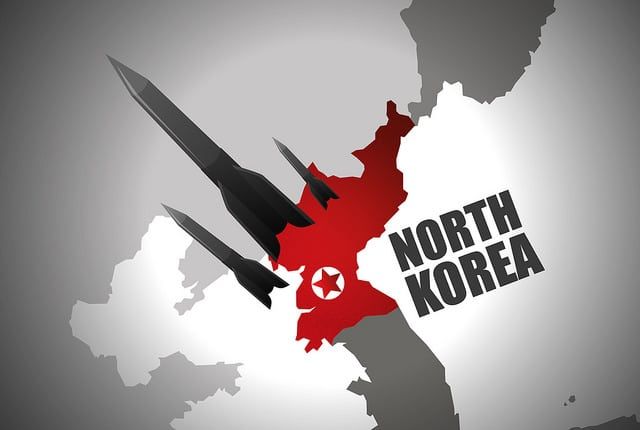The current US negotiating strategy with North Korea is doomed
By Perry World House | August 30, 2018

US negotiations with North Korea over the latter’s nuclear weapons program appear to have hit a major roadblock. While North Korea has temporarily suspended nuclear and missile testing and partially destroyed its nuclear test site, both steps are reversible, and North Korea has largely balked at US President Donald Trump’s demand for “complete, verifiable, and irreversible denuclearization.” Consequently, negotiations with Pyongyang may be on the verge of breakdown. Trump recently cancelled his secretary of state’s planned trip to the country, and the administration has gone back and forth in the last few days about whether Washington will continue to suspend joint military exercises with South Korea, a concession Trump made to North Korean leader Kim Jong-un during their historic summit in June. Given this critical juncture in negotiations, it is time to reevaluate what talks can actually achieve. It would be great if Kim agreed to hand over all of his nuclear weapons, but the reality is that North Korea will not be completely, verifiably, or irreversibly denuclearizing anytime soon. Therefore, if the Trump Administration wants to salvage the negotiations, it needs a new strategy.
Why North Korea won’t denuclearize. The first step to a successful negotiating strategy is understanding how your opponent thinks. So why does North Korea want nuclear weapons in the first place? For the same reason Israel, France, India, and others wanted them—security. Specifically, security against the United States.
North Korea’s murderous dictator has good reason to worry about an American intervention to overthrow his regime. First of all, the United States is much more powerful than North Korea. While the size of North Korea’s entire economy is about $40 billion at most, America spends over $700 billion on its military alone. Second, this fact, combined with Washington’s long history of military interventions, is enough to make any despot shake in his shoes. Finally, the specific history between the United States and North Korea is not reassuring to Kim. The two countries fought against each other in the Korean War, President George W. Bush branded North Korea part of the “axis of evil,” and Trump threatened Pyongyang with “fire and fury like the world has never seen.”
Like many relatively weak countries facing a threat, North Korea turned towards nuclear weapons not because its leader is crazy, but to deter a stronger power. By threatening to punish the United States and its allies with a nuclear response if it is attacked, North Korea is able to effectively dissuade Washington from such attempts. Since Kim’s top priority, like most autocrats, is regime security, he will only give up the protection of his nuclear weapons if he is very confident that he can retain his power without them. Though Trump committed to guaranteeing North Korea’s security in the Singapore Declaration, a number of recent historical episodes will make it difficult to convince Kim he can remain safe if he surrenders all his nuclear weapons.
One example involves Libya. In 2003, Libyan dictator Muammar Gaddafi agreed to give up his nascent nuclear weapons program and permit international inspections. In return, US President George W. Bush promised that Libya could “regain a secure and respected place” among nations. However, just eight years later, in 2011, the United States led a NATO military intervention in Libya that resulted in the brutal killing of Gaddafi. In recent months John Bolton, Trump’s national security advisor, has repeatedly said that Washington has the “Libya model” in mind for North Korea, probably the least reassuring example that could be communicated to Kim.
A second leader who did not do well after suspending his nuclear weapons program was Iraq’s Saddam Hussein. While states that possess nuclear weapons can almost always effectively deter military intervention, states that do not, like Iraq in 2003, are vulnerable. In a fate not much better than Gaddafi’s, Saddam was removed from power by an American military intervention in 2003 and ultimately hung in 2006.
A third cautionary tale is Ukraine. After the dissolution of the Soviet Union, Ukraine was left with a significant number of nuclear weapons. In 1994, Ukraine agreed to give up these weapons in return for financial assistance and key promises. Chief among these promises was Russia agreeing to “respect the independence and sovereignty and the existing borders of Ukraine.” Nevertheless, Russia annexed the Ukrainian territory of Crimea in 2014 and intervened militarily in Eastern Ukraine.
Finally, Trump personally undermined American negotiating credibility in two ways; one indirect and one direct. Indirectly, he hurt Washington’s credibility by withdrawing from the Iran nuclear deal, even though, according to the International Atomic Energy Agency, Iran was complying with its terms. The Trump Administration has now moved to severely punish Iran for its compliance by instituting tough sanctions. Second and more directly, Vox reported that Trump promised Kim during their June summit that he would sign a declaration formally ending the Korean War soon after their meeting. Although Trump never should have made this concession to Kim in the first place without extracting something more substantive in return, his failure to follow through only further hurts America’s credibility and may be responsible for the current impasse in negotiations.
Given this record, North Korea is very unlikely to agree to fully denuclearize in the short or medium-term, and demanding that it do so is only likely to lead to negotiation failure. To make real progress on this issue, the White House will need to take a different tack.
What Washington’s strategy should be. The Prussian statesman Otto von Bismarck said, “politics is the art of the possible, the attainable.” If North Korea will not be handing over its entire nuclear stockpile anytime soon, what possible, attainable options might curtail the threat? The most extreme option, of course, would be to launch a massive military attack against North Korea in an effort to destroy all of its nuclear weapons and infrastructure—the “fire and fury” Trump threatened. However, such an operation would be reckless to the point of insanity. North Korea has the ability to deliver nuclear missiles to South Korea, Japan, and American military bases in the Pacific. If even one or a handful of nuclear missiles survived an American first strike, hundreds of thousands could die beyond those killed in the initial US attack. Furthermore, even if the United States could reliably locate and destroy all of North Korea’s nuclear weapons in a first strike, Pyongyang would still be able to inflict tens of thousands of casualties daily using conventional and chemical weapons. Given that there is no imminent threat from North Korea’s nuclear program, a preventive war of this type would be nonsensical.
The most sensible option to address the nuclear threat from North Korea would be to pursue an approach dubbed “less for less” by nuclear scholar James Acton. Rather than demanding total denuclearization, the United States should seek a smaller-scale deal that puts significant restrictions on North Korea’s nuclear program in return for moderate sanctions relief and other limited concessions. For example, the North’s current moratorium on nuclear and intercontinental ballistic missile testing ought to be extended indefinitely, a cap should be placed on the country’s production of nuclear material and nuclear weapons, and, critically, international inspectors must be allowed back in to verify any agreement. This would actually be a worse deal for the United States and international community than the agreement with Iran, since North Korea would be allowed to retain a small nuclear weapons capability. Unfortunately, Pyongyang is in a better negotiating position than Tehran was: Its possession of nuclear weapons and geographic proximity to American troops and allies make the military option against it much less appealing.
There would be several benefits to this admittedly less ambitious approach. For one thing, it is realistic. The Trump Administration’s current demand, that North Korea hand over 60 to 70 percent of its nuclear warheads within six to eight months as a start, was never going to fly with Pyongyang. On the other hand, allowing North Korea to retain a relatively small nuclear arsenal will give it a deadly insurance policy in case Trump, or any administration in the near future, decides to renege on his security guarantees. Given North Korea’s dreadful economic state, this should be a deal Kim is willing to accept.
Second, this approach would help prevent war. If the Trump Administration keeps pushing for immediate unilateral disarmament and Kim, predictably, continues to balk, then Trump may feel pressure to turn towards a risky and potentially disastrous military option.
Finally, this approach would reduce the North Korean nuclear threat. With fewer nuclear weapons, the chance of an accident, theft, or unauthorized launch involving nuclear weapons would be reduced, and if, heaven forbid, there was another war on the Korean Peninsula, then at least North Korea would be less heavily armed.
Though the prospect of living with a nuclear-armed North Korea for the foreseeable future may seem unacceptable, the world has survived with a nuclear-armed Russia for the last 69 years, China for the last 54 years, Pakistan for the last 20 years, and, yes, North Korea for the last 12 years. Just as North Korea’s nuclear weapons have effectively deterred the United States from a major military intervention, America’s vastly superior nuclear arsenal and conventional capabilities will almost certainly deter North Korea.
This column was written by Joshua A. Schwartz, a PhD candidate in political science at the University of Pennsylvania.
Together, we make the world safer.
The Bulletin elevates expert voices above the noise. But as an independent nonprofit organization, our operations depend on the support of readers like you. Help us continue to deliver quality journalism that holds leaders accountable. Your support of our work at any level is important. In return, we promise our coverage will be understandable, influential, vigilant, solution-oriented, and fair-minded. Together we can make a difference.
Topics: Columnists, Nuclear Weapons
















Great references to applicable cases in history while pointing out the similarities and differences in today’s environment with North Korea.